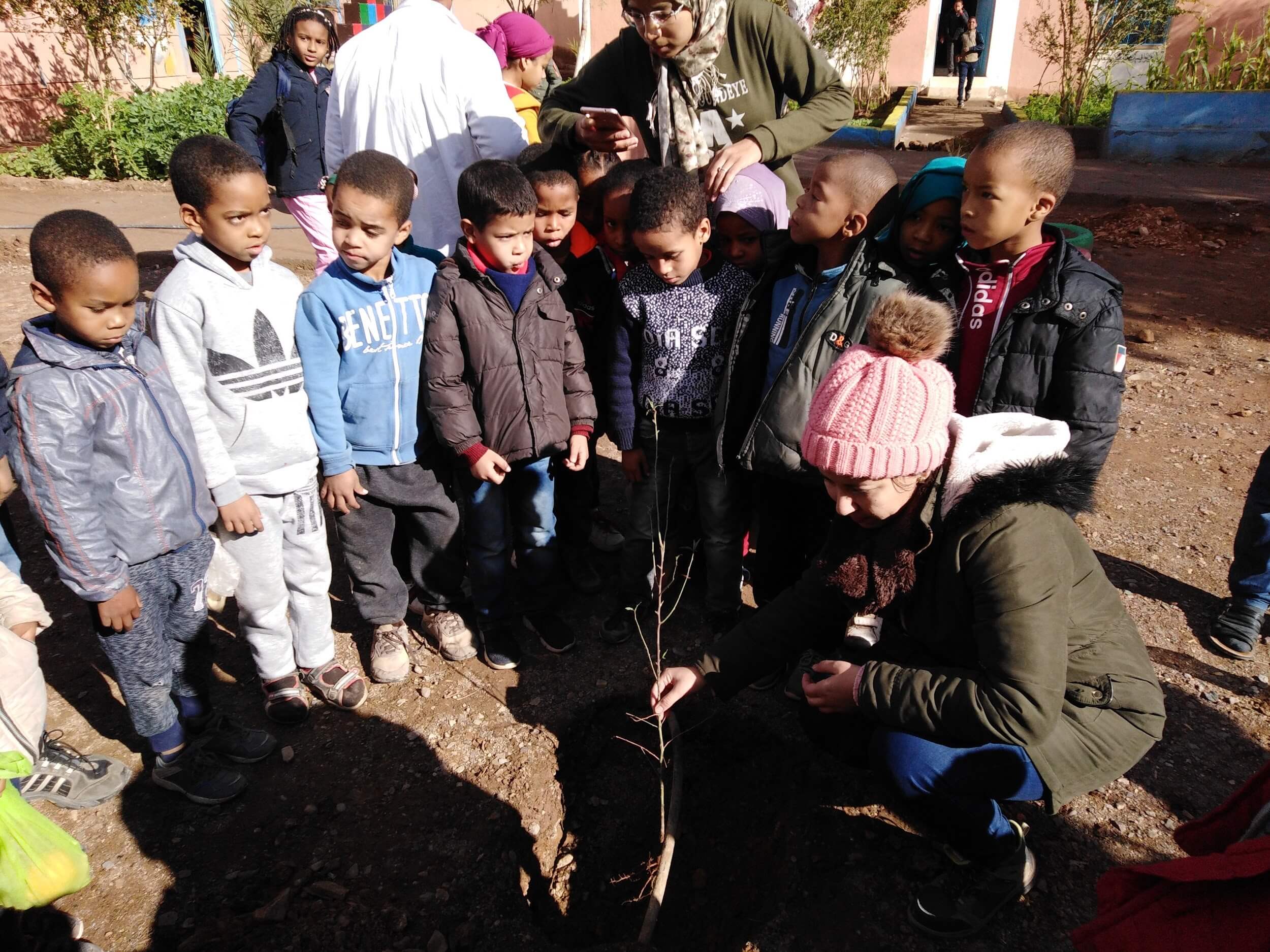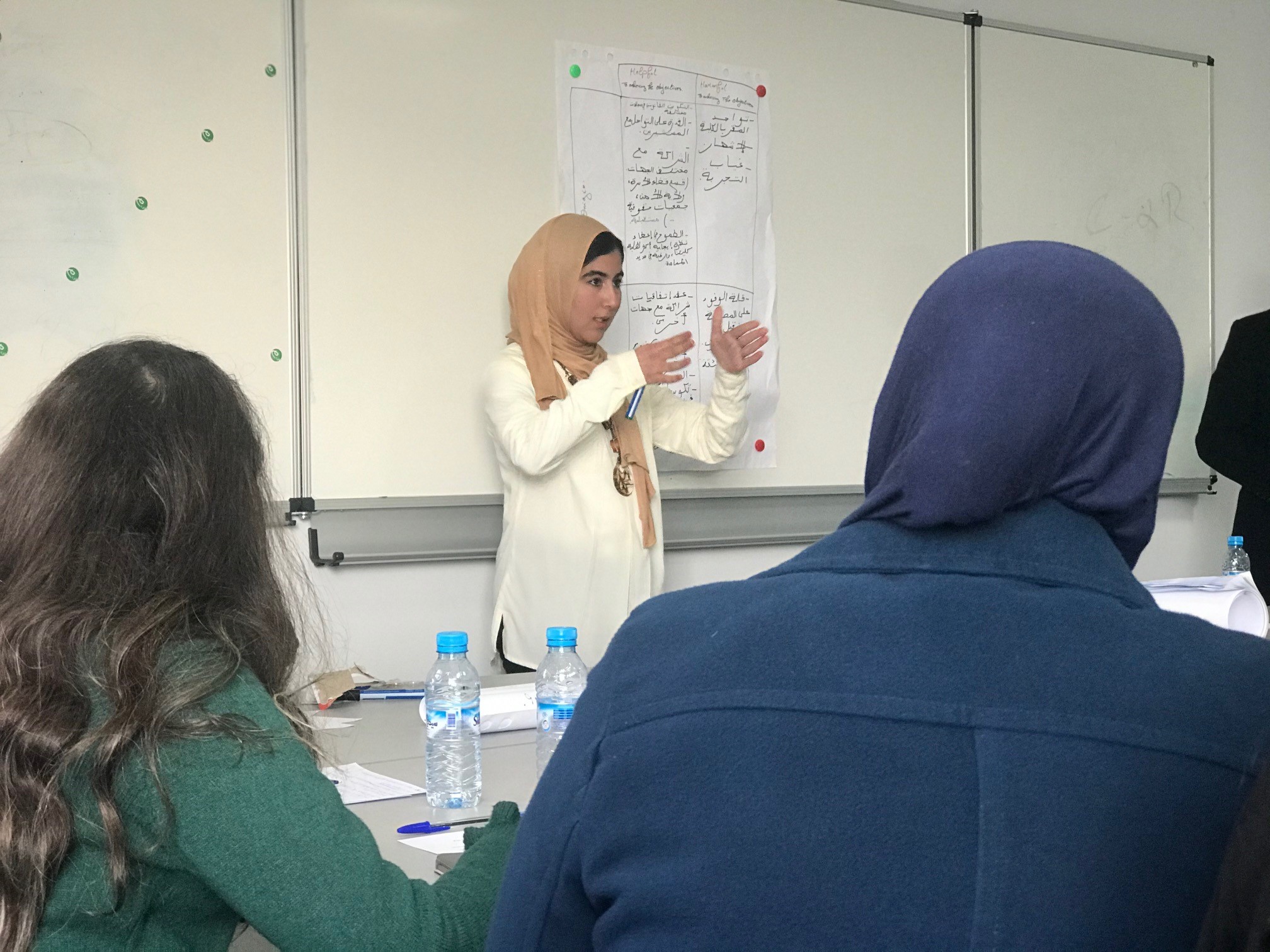By Katie Bercegeay
HAF Project Manager
On Friday, December 27, law students at University Sidi Mohamed Ben Abdellah in Fes gathered to continue in a series of training workshops preparing them to work in a faculty-housed pro bono law clinic in 2020.
The morning began with a short exercise to practice active listening. Students–and even their professors–partnered up and took on roles of “story-teller” and “listener.” Story-tellers recounted over the course of one short minute a time when they had experienced a small family disagreement. Listeners, forbidden from speaking or interrupting, took as many mental notes as possible while using nonverbal communication to convey their attentiveness. They then recounted the story as best as possible to the original story-teller to check for understanding. From the exercise, we realized how difficult it can be to not interject our own thoughts or opinions while others are speaking and also how vital active listening is to effective communication.
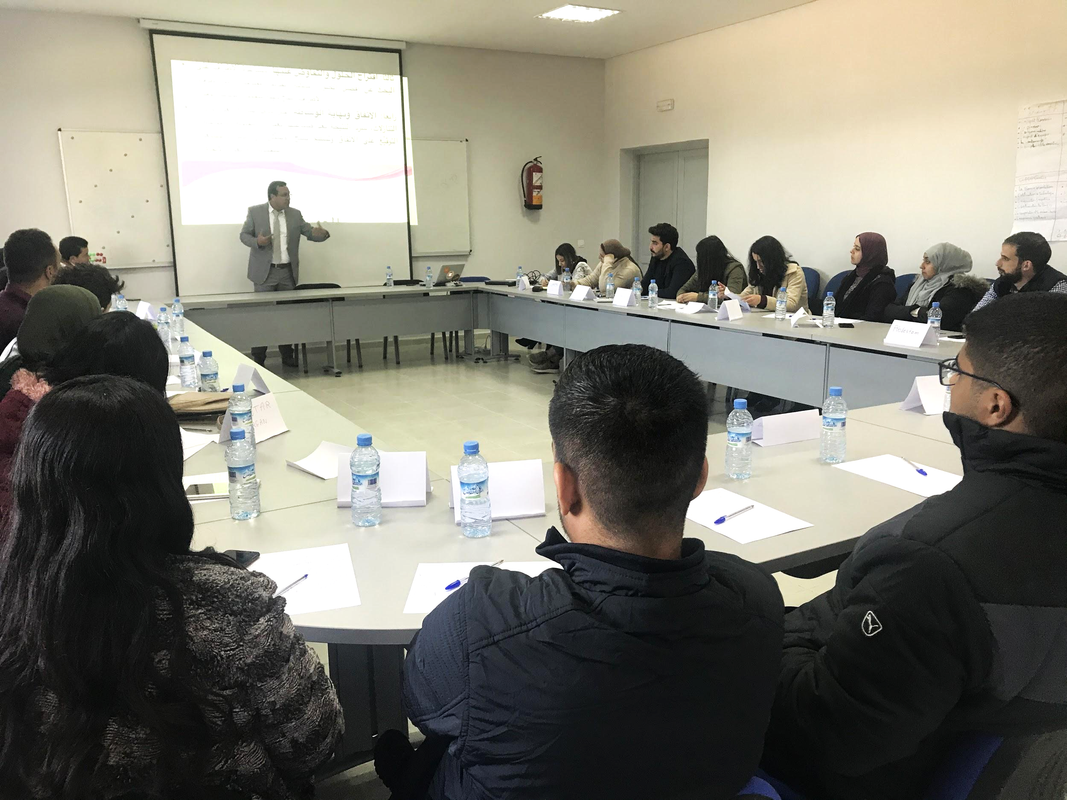
Professor Karim Mouttaki overviewed with students Family Mediation practice according to Moroccan law, including the history of mediation and the differing factors between mediation, reconciliation, and arbitration. He used common examples students may encounter during their legal counsel and facilitated a healthy debate among students who were given the opportunity to both offer their points of view on particular scenarios and also rebut the claims of other students with contrasting arguments.
Students took part in group simulations to practice and test their knowledge of family mediation law and of the soft skills necessary to facilitate a successful counseling session. Each group was comprised of two family members, typically a husband and wife, and the legal counselor. Their characters were pre-assigned characteristics and points of view, and it was the students’ role to embody these characters in non-scripted fashion during an improvised mock counseling session.

Audience members graded each group on legal technicalities as they performed. Afterward, they also discussed the strong points of each simulation and acknowledged the challenging aspects of giving legal aid, such as the unpredictability of personalities and situations. Students assigned to the role of legal aid counselor proved to have the most difficult job, trying to navigate sticky conversations with clients while trying to maximize the little time they had to come to some resolution.
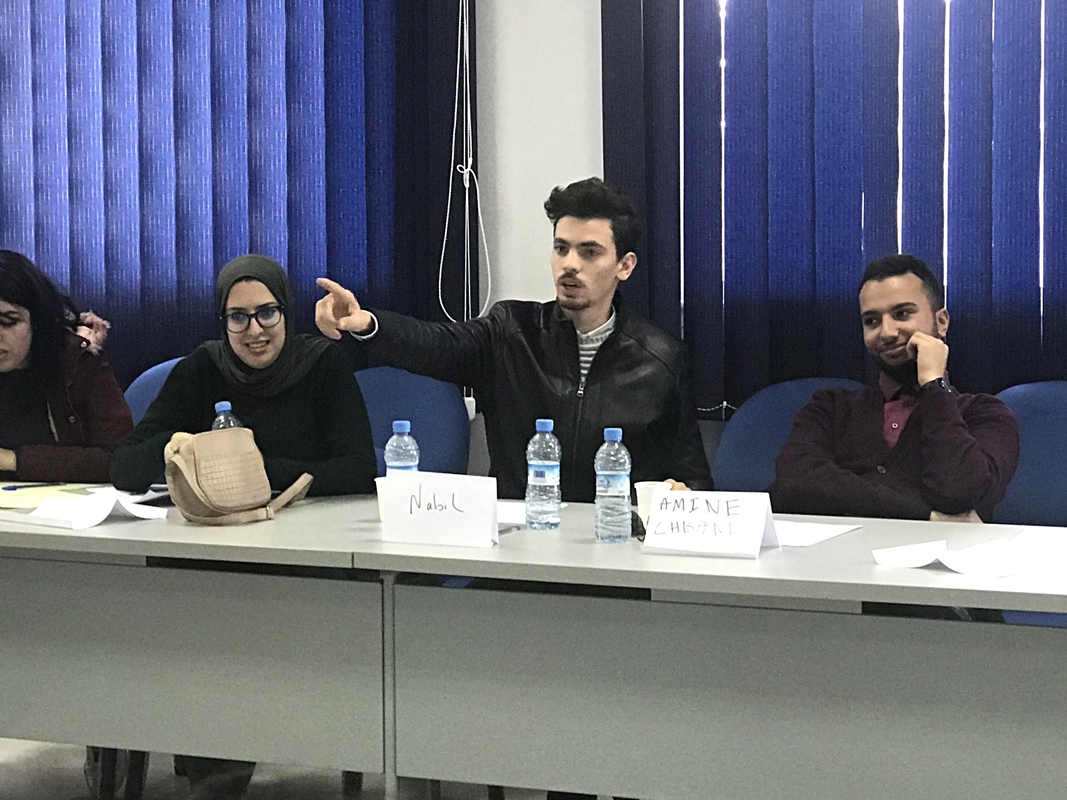
In the afternoon, students broke off into small working groups to identify potential projects utilizing the information previously drawn from a SWOT analysis of the legal clinic. They brainstormed projects that utilize their strengths to take advantage of opportunities, those that use strengths to overcome or minimize threats, projects that overcome weaknesses to pursue opportunities, and projects that attempt to address both weaknesses and threats. Afterward, group representatives presented three project ideas to the larger group, totaling twelve new project ideas.
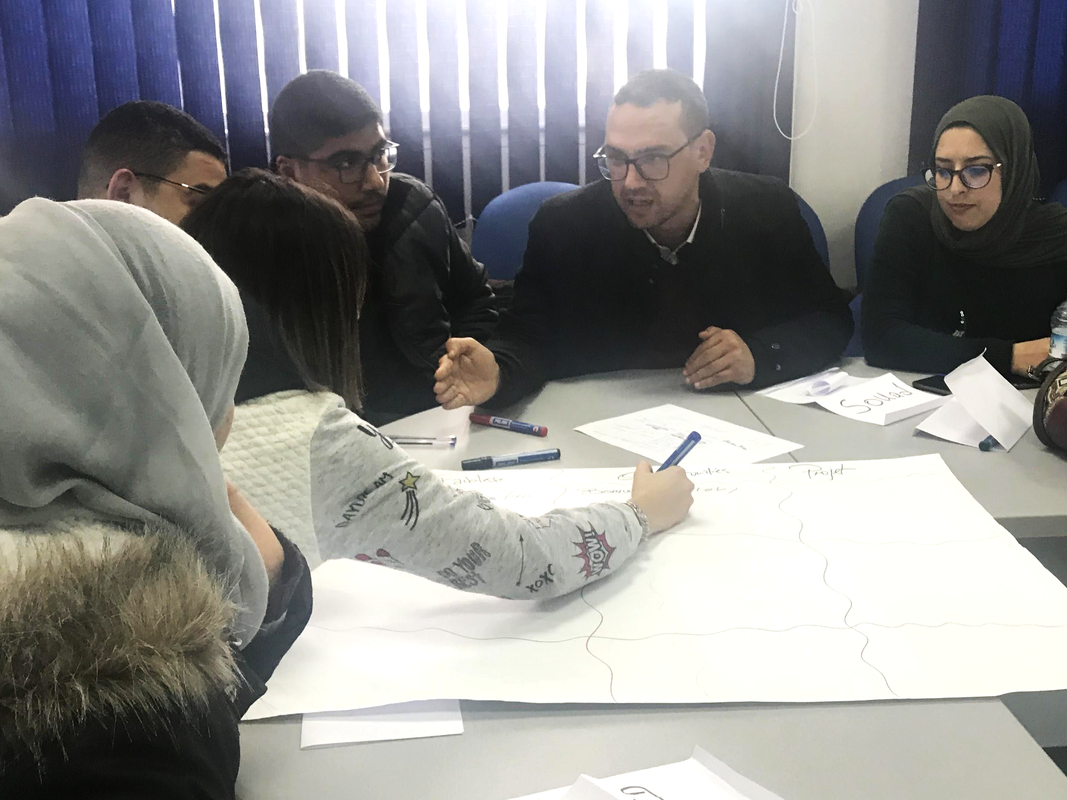
Students then voted on five priorities they believe to be the most important for the Clinique Juridique. Among these were: the establishment of partnerships among national and international actors; the development of project proposals for relevant Moroccant ministries, civil society organizations, nongovernmental organizations, and governmental agencies, including the National Initiative for Human Development (INDH); amplified marketing strategy including active social media, website, and a boilerplate document explaining the objectives and operations of the clinique juridique; and a system to refer clients to external partners in exchange for financial or in-kind support for the legal clinic.
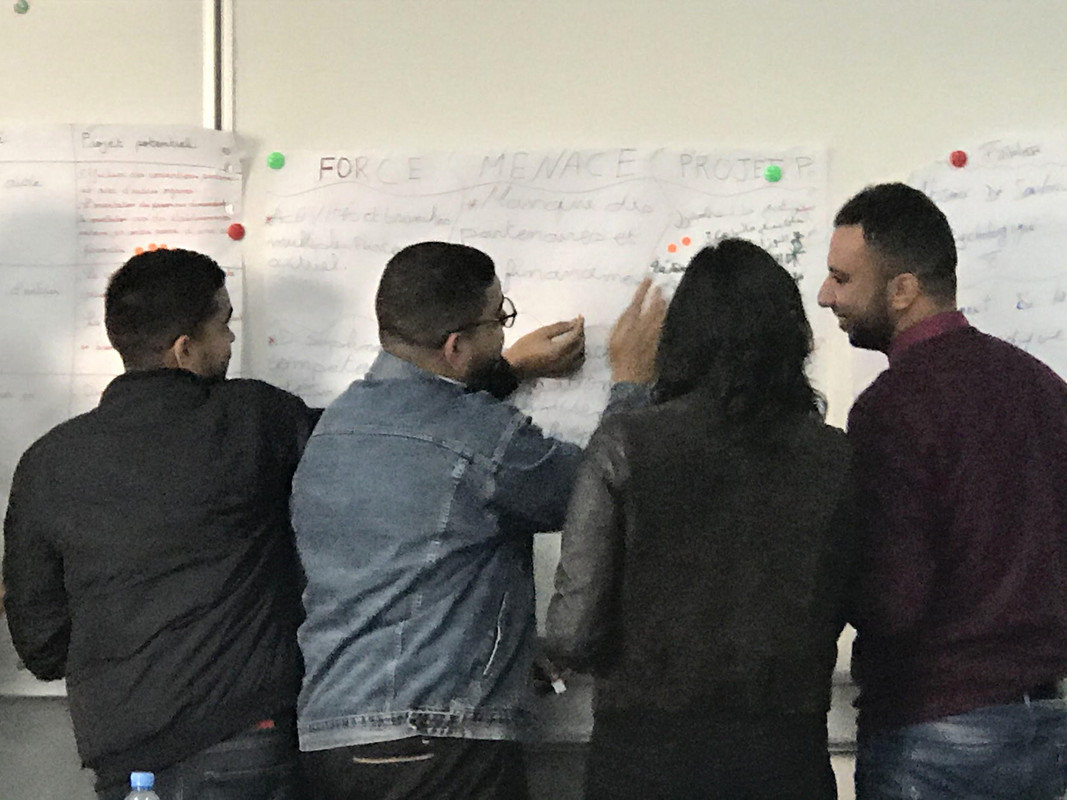
In January, trainings will focus on migration policy in Morocco, and students will begin to formalize and implement the actionable priority items they have identified.
Click here to check out more photos from this project.
The High Atlas Foundation is working in partnership with the University Sidi Mohamed Ben Abdellah (USMBA) in Fes to establish a Law Clinic and Legal Aid program which actively engages students in experiential and service learning for the greater good of the local community. The project is funded by the National Endowment for Democracy and aims “to foster greater cooperation among local civil society organizations and universities and promote service learning.”
Give to this project.
